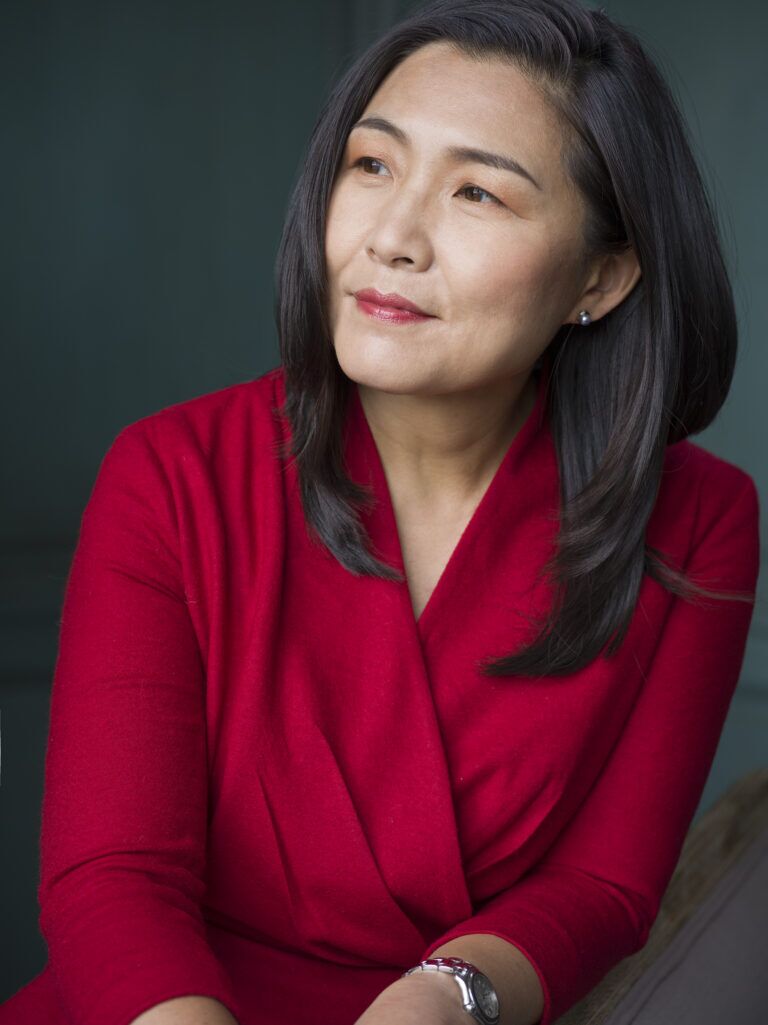General Discussion
Related: Editorials & Other Articles, Issue Forums, Alliance Forums, Region Forums'Misogyny Is a System': Julie Suk Wants to Reimagine U.S. Institutions--and Build a Democracy of Equality
(lengthy, depressing, important read)
‘Misogyny Is a System’: Julie Suk Wants to Reimagine U.S. Institutions—and Build a Democracy of Equality
PUBLISHED 7/15/2025 by Carmen Rios
“Even if we formally have the right to vote and we formally have equality,” legal scholar Julie Suk explains in the first episode of Looking Back, Moving Forward, “the entire infrastructure by which women have been excluded from real participation in decision making and power, that continues.”
Julie Chi-hye Suk, the honorable Deborah A. Batts distinguished research scholar and a professor of law at Fordham University School of Law, details how feminists have leveraged constitutional amendments and empowerment in democratic institutions to dismantle patriarchy in her most recent book, After Misogyny: How the Law Fails Women and What to Do About It. She also lays out a vision for a “constitution of care” here in the U.S. — and a blueprint for how we can make it happen.

“We have a constitutional system that sets up representative institutions that actually don’t represent all the people very well,” says Julie Suk.(Nina Subin)
As part of the first episode of the new Ms. Studios podcast Looking Back, Moving Forward, Suk talked to feminist superstar and Ms. consulting editor Carmen Rios about the misogyny embedded in our institutions, the shortcomings of our Constitution, and the kind of change women need to achieve true equality. Suk is joined in the first episode of the new series by She the People founder Aimee Allison, New Mexico state Sen. Angel Charley, RepresentWomen founder Cynthia Richie Terrell, pollster and political strategist Celinda Lake, and professor Jennifer M. Piscopo, an expert as well in gender and politics. Together, we explore the promise of a truly representative democracy — and the lessons feminist history offers for how we can advance a feminist future.
This interview has been lightly edited and re-organized for clarity and length.
Carmen Rios: The new administration’s onslaught of regressive policies reminds us that the structures of our government and our electoral systems are, clearly, lopsided — that there’s something inherently anti-democratic about a government that can get to the point it’s at right now and be pushed to the point it’s at right now. How do you think misogyny led us here?
Julie Chi-hye Suk: The point that we’ve reached is a crisis, but it’s a crisis for, perhaps, different reasons than is often assumed. The problem is that we have a constitutional system that sets up representative institutions that actually don’t represent all the people very well. A lot of compromises were reached in 1787 to design Congress, for example, and one of the chambers, the Senate, is very malapportioned. It represents every state equally, two senators per state, and so, that is, itself, undemocratic. The Senate’s power explains a lot of things, including its blocking of a lot of legislation and constitutional amendments in our history that could have changed our political structures to be more representative and more democratic.
No modern democracy uses an electoral college to elect the president. It’s very normal, in most modern democracies, to let the people pick the president. We have tried: Around the same time that the Equal Rights Amendment was introduced, there was an initiative in Congress to try to move to a national popular vote for the presidency. These problems are related to the moment that we’re now in. I understand that Donald Trump did win the national popular vote and the electoral college to get into power in 2024, but I don’t think the second Trump presidency would have been possible without the first Trump presidency, and the first Trump presidency was, basically, a direct result of a system in which we don’t let the people pick the president. Hillary Clinton won the national popular vote, but he won the electoral college, and he came to power then, and his first four years in office were necessary to legitimize him and to give him the platform that enabled the second presidency that we’re now in.
These are just a couple examples of having an antiquated and not totally democratic and representative set of institutions. It’s really our nation’s struggle with racism and slavery, more so than misogyny, that is directly responsible for the unrepresentative and anti-democratic nature of our basic political and legal institutions, but the two dynamics are very related, misogyny and race-based slavery, because, really, misogyny is a system. Patriarchy is a system by which people who are in power extract benefits and value from people who have no rights. In our nation, that meant enslaved African Americans and women who did not have rights, but were expected to basically take care of our posterity, just to quote the Preamble of the US Constitution, to do all the reproductive labor necessary to perpetuate the nation throughout the generations. That inherently anti-democratic idea — that the people who govern are benefitting from the exclusion of others, who can’t govern because they’re excluded — that’s actually been maintained through institutions that are not democratic, fundamentally.
. . . .
https://msmagazine.com/2025/07/15/julie-suk-misogyny-democracy-women-politics/